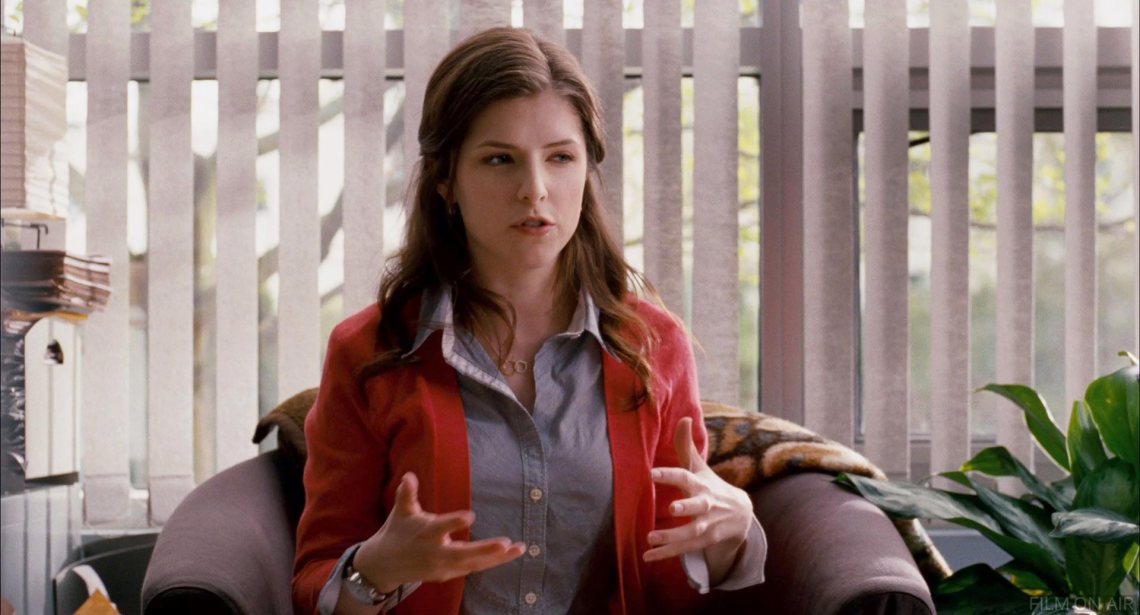
1. You burn out.
Because I am not in the business of selling you half-truths or sugar-coated fibs for the sake of a story, I am telling you this: you will burn out. This may be an opinion backed solely by personal experience, observation, and no genuine literature, but frankly, burn-out is inevitable. Long after the rose-tinted glasses have shattered, the pink clouds have faded, and the novelty of choosing such a profoundly noble career promise to save the world has worn off, you will find yourself suffocating. Suffocating under the weight of compassion fatigue, running on empty, just trying to get through the day. Burn out starts off slowly—when, without realizing it, you start to lose little pieces of yourself to your career.
And please understand—you don’t burn out because you stop loving what you do or because you care about people any less. You burn out because when you go in, you go all in.
You start to burn out when you stay late a couple hours a week to make phone calls that you couldn’t get to. You start to burn out when you stay late to see a client that you couldn’t fit into your regular schedule. You start to burn out when you spend hours on the weekend trying to catch up on paperwork, only to be reminded that it’s an impossible task to achieve. You start to burn out when you press the snooze button a little too aggressively in the morning– when you are sluggish, and tired, and need three coffees to get through your day over your usual two. You start to burn out when you neglect things in your own life– when you don’t make time for laundry, or cleaning your apartment. You start to burn out when the grocery store is a trip that you just aren’t willing to make, and you start ordering take out every day because the thought of cooking for the week is utterly exhausting.
2. You learn to define what self-care is and what it isn’t.
Only through feeling the familiar and uncomfortable sting of burn out, do we learn this. At first, self-care will look a lot like trips to the spa or a day at the hair salon. And as you move along in your career, you realize that self-care is much more than pampering – though there is certainly nothing wrong with that. Self-care happens right in the midst of all of the chaos. It’s learning to take in a deep breath when you are engulfed in anxiety.
It is seeing the shades of grey when all you see are black and white. It is picking up the phone and calling a friend just to ask them how they are doing. It remembering that you have a world outside of the people who sit in the chair in front of you. It’s meal prepping for the week and committing to 5 am workouts 3x a week. It’s reading a few pages of a book before bed. Self-care is setting firm boundaries and sticking with them. It’s saying no to taking on more work, no matter how much money it is. It’s taking breaks. It’s turning off your phone. It’s staying in on a Friday night to order sushi take out and watch Netflix alone. It’s making sure to unplug when you need it, but also to see friends when you need them. It’s making sure you actually eat, instead of forgetting to sit down for meals. It’s staying hydrated. It’s forgiving yourself for not being able to do it all. It’s allowing yourself to be okay with just simply existing for the day. It’s reminding yourself to just breathe – really, I mean it; just breathe.
3. You learn that exhaustion takes on a whole new meaning.
And I mean the soul-sucking, do-not-look-or-speak-to-me-unless-you-want-me-to-yell exhaustion. Every day is unpredictable. You can expect to have a free morning but come into a client on the phone in a crisis. You go through the standard risk procedures, making sure that the person on the other end of the phone is safe. And while you are managing that, a group of clients is led to your office with questions. You told your intern to explain the rules of their referral source and if the group had any questions, direct them to your office. Their questions, while not a risk concern, need to be answered right away. As you are wrapping up answering their questions and tying loose strings on the client from earlier, another intern comes in with questions about a high-risk situation that they are unsure of whether or not they handled correctly.
Shortly after that, you have two clients show up for the wrong appointment time, and you have to send them both home because you have someone else scheduled. Ten minutes later, you are filled with guilt because your next client doesn’t show up and you could have met with one of the two clients from earlier. You see some clients back to back. This is the actual work—where the exhaustion trickles in. The active listening, being present, paying attention, being engaged and spending time with the person sitting right in front of you and blocking out all of the other noise – all of the work left undone, and the phone calls that still need to be made, and the thoughts of I-hope-that-person-is-safe is utterly exhausting. But still, you do it, because this is why we chose this. This is what we love.
The human connection – the relationship between a therapist and a client – that is why we do this.
Shortly after wrapping up with your back-to-back appointments, you take a deep breath and look at your schedule. You have a free hour to make sure that all of the tasks from the morning were managed and handled. You think you have this free hour to catch up on progress notes, or treatment plans, or make phone calls, or eat, or go grab a coffee because you can’t speak without yawning. But then a secretary comes in and lets you know that there is a client in the waiting room who’s been waiting for their transportation that never came, and so you sit with them while they call someone to come pick them up and then together, make a complaint to the transportation service that left them stranded. And after all of this has happened, you take a long deep sigh; you have a mountain of paperwork to catch up on, phone calls that were left still unmade, appointments to reschedule, and you have to be back in the office in less than 12 hours.
Some days are easier than others. Some days are lighter than others. And then there are stretches of time when the stories you have to process are sometimes so heartbreaking, and sad that you can’t help but feel your heart shatter when you hear them. Sometimes the stories tap into your own personal demons and trigger countertransference issues for a problem you thought you resolved years ago. And sometimes you can feel your heart breaking under the weight of the unimaginable trauma that someone else has had to go through. It’s sometimes gut-wrenching, and painful, and exhausting—but so, so rewarding.
4. You are inspired daily.
It’s humbling being able to come into work and do what we do. The people that we meet with daily let us into their world and share their honest realities—something that takes the kind of courage that most of us are terrified to come face to face with. It’s vulnerable, and it’s painful and sometimes unbearable for the person sitting across from me. But we are so lucky to get to sit in our chairs and witness the bravery that comes from trauma, and heartache, and pain.
Our clients say the things that very few of us dare to say aloud.
I can’t do this on my own. I am unlovable. I’m hurting. I feel like I will never find peace. I don’t think I will ever move past the trauma of my childhood. I don’t think I will ever mend my relationship with my family. I think I am the one to blame for all the crap that’s happened.
And they do this so bravely, so openly, and so boldly. And it is this kind of strength and vulnerability that pushes me to be aware of my own emotions and be more honest with myself. My clients refuse to sleepwalk through life. They refuse to remain stagnant or stuck by the centripetal force of reality, no matter how much easier it would be to do so. They acknowledge that life is hard, but they go all-in, head-first, into healing. And that is inspiring.
5. You learn to allow yourself to be human.
We’ve created a career that allows us to see the transformation of people over time.
Change happens in increments, and often, if you are the one making the changes, it’s hard to see without someone else pointing out how you’ve grown. Change happens the first time someone acknowledges trauma, rather than minimizing it. Change happens when you don’t respond to a phone call from an ex for the first time. Change happens when you eat a meal without the sinking feeling of regret and the pang in your stomach that tells you to purge. Change happens the first time you admit that you can’t do this on your own.
As therapists, we see these stages of change and acknowledge them as bigger than they appear—because they are. But as humans, we often forget that just like the change we see in our clients, we must also be patient with our own change. If we have a bad day, we expect for it to end in an hour. We want to rush to put together pieces of our broken heart when in reality, only time can mend that. But, we learn, through trial and error, to be patient with ourselves—the way we would with our clients. We learn to allow ourselves to be human—to forgive ourselves, to be kinder to ourselves, to be easier to ourselves, and to give ourselves grace.
6. You learn gratitude and humility.
There will be moments when you look at the world, or at your caseload, and realize that you are just a spec – you are so small in comparison to the world around you. And sometimes, you’ll fall into the trap of imposter syndrome as a therapist—sometimes, you’ll look at your hands and think to yourself: How can someone so small help someone else whose problems are heavier than my small hands could ever carry?
I think recognizing that – recognizing just how small we are, but just how important the work we do is powerful.
Some days, I sit with myself and think how lucky I am that I get to do this. How many people can say that they get to come into work and experience real, raw human connection daily? We see strength, bravery, and courage even when the person sitting in front of us doesn’t. To be able to sit in front of a stranger and allow them into all the jagged little edges of your soul requires the kind of vulnerability that I am certain most people do not tap into. It’s scary being seen, though subconsciously, I think we all want that. It’s scary putting your trust into a person that you don’t know, but believe me when I say: it is such a beautiful privilege to be the one invited to sit right at the crux of someone else’s pain—and I would not trade that for anything else because that is why we do this. ![]()






